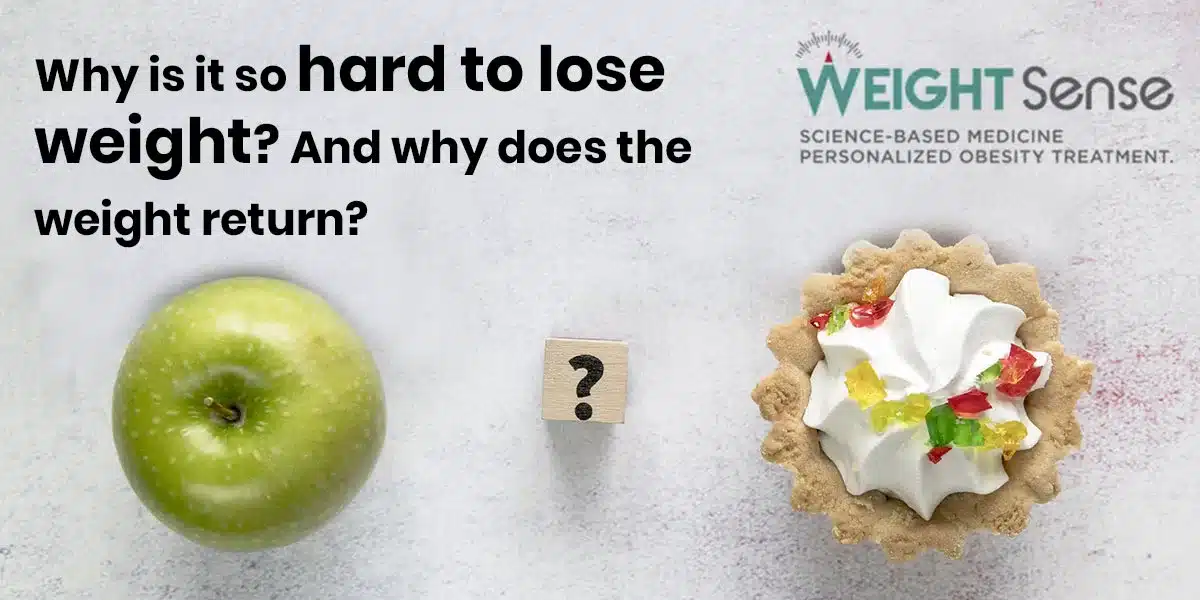After weight loss, your body goes into overdrive to put the weight back on! 😱 This phenomenon is called “metabolic adaptation.”
Let’s break it down and see why this happens: 🧐
Metabolic adaptation refers to the body’s physiological response to weight loss due to decreased calories and increased physical activity. When individuals reduce their calorie intake or engage in increased activity the body tends to react to the weight loss by working to regain the weight to restore energy balance. Now that explains a lot, huh!
These adaptations primarily occur in the following ways:
- Slower Metabolism with Basal metabolic rate (BMR) reduction: BMR refers to the amount of energy the body requires to maintain basic physiological functions at rest. As weight loss occurs, BMR tends to decrease because there is less body mass to support. This reduction in BMR contributes to a decrease in overall calorie expenditure.
- Increased Hunger Hormones: Weight loss can lead to alterations in hormone levels that regulate appetite especially the hunger hormone ghrelin. This decrease can result in increased hunger, decreased satiety (feeling of fullness), and a drive to regain the lost weight.
- Decreased non-exercise activity thermogenesis (NEAT): NEAT refers to the energy expended during daily activities such as fidgeting, walking, or standing. When weight loss occurs, NEAT tends to decrease as a compensatory response, leading to reduced calorie expenditure throughout the day.
These metabolic adaptations can make weight loss more challenging over time. As the body adapts to lower calorie intake and reduced weight, the rate of weight loss may slow down, plateau, or even reverse (weight regain). This phenomenon is commonly referred to as the “weight loss plateau” and is a significant hurdle for many individuals trying to lose weight.
Understanding metabolic adaptation is important because it helps to explain why sustained weight loss can be difficult to achieve and maintain. It emphasizes the need for a comprehensive approach to weight management that goes beyond calorie restriction, including strategies such as regular physical activity, behavioral modifications, and long-term lifestyle changes to support weight loss and weight maintenance. It also demonstrates the utility of using anti-obesity medications to help people who have overweight or obesity treat their weight to improve their health.
Anti-obesity medications can play a role in mitigating the effects of metabolic adaptation during weight loss. These medications are designed to aid weight loss efforts by targeting various physiological mechanisms related to appetite control, metabolism, and energy expenditure. Here’s how anti-obesity medication can potentially help with metabolic adaptation:
- Appetite suppression: Some anti-obesity medications work by reducing appetite and promoting feelings of fullness, which can help individuals adhere to a lower calorie intake. By curbing hunger, these medications can help counteract the increased appetite often experienced during weight loss due to hormonal changes.
- Increased thermogenesis: Certain anti-obesity medications can also play a role in increasing thermogenesis, these medications can help offset the decrease in basal metabolic rate (BMR) that occurs during weight loss.
- Reducing cravings: Certain anti-obesity medications can play a role in reducing emotional hunger or food cravings.
- Combating insulin resistance: Obesity is often associated with insulin resistance, which can impede weight loss efforts and contribute to metabolic adaptation. Certain anti-obesity medications can improve insulin sensitivity and glycemic control, also contributing to preventing or treating diabetes.
It’s important to note that anti-obesity medications should be used under the guidance and supervision of a trained healthcare professional. These medications are typically prescribed as part of a comprehensive weight management plan that includes lifestyle modifications focused on improving nutrition, physical activity and behavior modifications. Additionally, the effectiveness and safety of anti-obesity medications can vary depending on the individual, and their use should be tailored to each person’s specific needs and medical history.
Book a Free Medical Weight Loss Consultation and Take the First Step towards a Healthier You.




